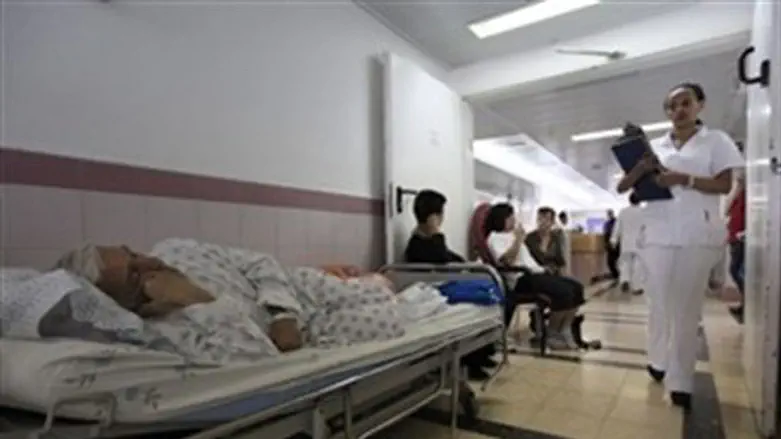
A team of Israeli scientists from the Weizmann Institute in Rehovot may have achieved a breakthrough in treating autoimmune diseases, such as Crohn’s, lupus and rheumatoid arthritis, in which the body’s immune system mistakenly attacks healthy tissue rather than invading germs.
The scientists managed to “trick” the immune systems of mice into targeting an enzyme known as MMP-9, one of a family of proteins essential for processes including healing wounds. When the enzyme gets out of control, however, MMP-9 facilitates autoimmune diseases as well as the spread of cancer.
President of the Israeli Biophysical Society Irit Sagi and her research group spent years looking for ways to block MMP-9. They first tried making a synthetic drug molecule targeting MMPs, attempting to mimic the body’s MMP inhibitors, known as TIMPs. However, the efforts proved largely ineffective and had extremely severe side effects.
Subsequently, Netta Sela-Passwell, a graduate student in Sagi’s lab, decided to work on a solution, whereby a vaccine was used to trick the immune system into creating natural antibodies against MMP-9. It works in the same way that a vaccine containing a dead virus induces the immune system to create antibodies ready to attack the live virus.
Together with Prof. Abraham Shanzer of the Weizmann’s organic chemistry department, the researchers created an artificial version of the metal zinc-histidine complex at the heart of MMP-9. They then injected these small, synthetic molecules into mice.
Blood tests done on the mice following the procedure showed the presence of antibodies the scientists dubbed “metallobodies,” which are similar to TIMPs in structure and function. In lab experiments, they saw that the metallobodies bound tightly to both the mouse and human versions of MMP-2 and MMP-9.
They then induced an inflammatory condition that mimics Crohn's disease in mice, and watched how the metallobodies operated. To the scientists’ great delight, the Crohn’s symptoms were successfully prevented.
“We are excited not only by the potential of this method to treat Crohn’s, but by the potential of using this approach to explore novel treatments for many other diseases,” said Sagi, who is president of the Israeli Biophysical Society.
Yeda Research and Development Company, the technology transfer arm of the Weizmann Institute, has applied for a patent for the synthetic immunization molecules as well as the generated metallobodies.